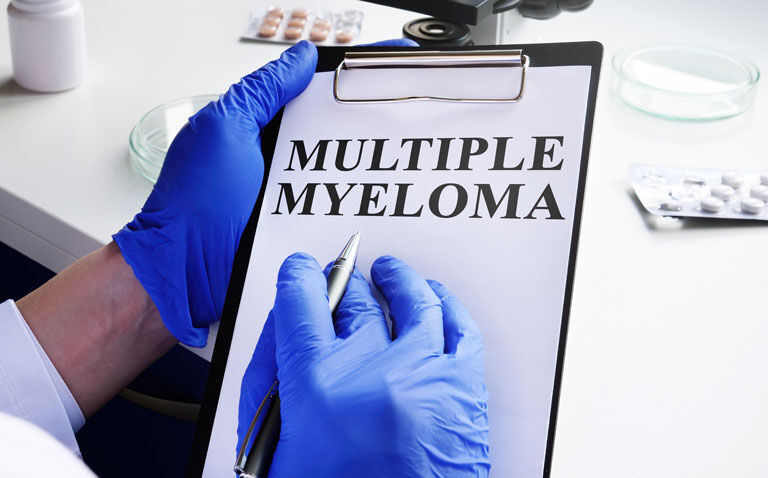A cilta-cel infusion lowers the risk of disease progression or death compared to standard care in lenalidomide-refractory patients with multiple myeloma, according to the findings of a recent randomised trial.
Multiple myeloma represents a malignant disease of plasma cells with a worldwide incidence of 6-7 cases per 100 000 persons per year. Lenalidomide is an immunomodulatory drug for maintenance treatment in newly diagnosed multiple myeloma which improves progression-free survival (PFS). But when patients fail to respond to lenalidomide, what is the most appropriate therapy?
This was the question addressed in a recent study published in the New England Journal of Medicine. Researchers undertook a randomised trial of cilta-cel – a B-cell maturation antigen-directed CAR-T cell therapy – in patients with lenalidomide-refractory disease.
All participants had received one to three prior therapies and were equally randomised to either cilta-cel or the physician’s choice of effective standard care. The physician’s standard care was pomalidomide, bortezomib and dexamethasone, or daratumumab, pomalidomide and dexamethasone. Researchers set the primary outcome as PFS, defined as the time from randomisation to the first documentation of disease progression or death.
Cilta-cel infusion and progression-free survival
In total, 419 patients underwent randomisation, with 208 (mean age 61.5 years, 55.8% male) receiving cilta-cel.
Cilta-cel treatment gave rise to a a significantly lower risk of disease progression or death compared to standard care (hazard ratio, HR = 0.26, 95% CI 0.18 – 0.38, p < 0.001).
After 12 months, PFS was 75.9% (95% CI 69.4 – 81.1) in the cilta-cel group and 48.6% (95% CI 41.5 – 55.3) in the standard care group. In addition, a higher proportion of patients in the cilta-cel group had an overall response (84.6% vs. 67.3%), a complete response or better (73.1% vs. 21.8%) and an absence of minimal residual disease (60.6% vs. 15.6%).
In terms of safety, Grade 3 or 4 adverse events occurred in a similar proportion of participants in the two groups (96.6% vs 94.2%, cilta-cel vs standard care).










